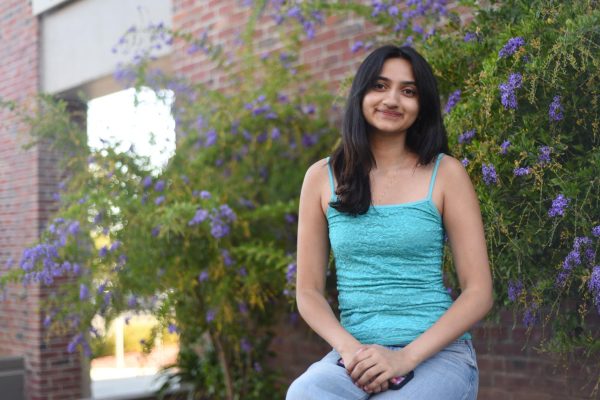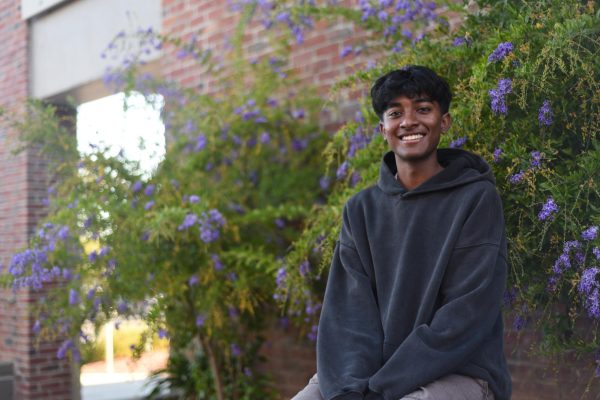On Oct. 6, 2024, Vice President and 2024 Presidential Candidate Kamala Harris appeared on an untraditional press escapade: “Call Her Daddy,” a popular podcast where the host, Alex Cooper, discusses relationships and shares personal anecdotes with an interviewee. Similarly, on Aug. 5, Presidential Candidate Donald Trump appeared on streamer Adin Ross’s livestream for a conversation. According to MVHS ’24 alum and Cornell freshman Lillian Wang, by using famous Gen Z figures, politicians are attempting to resonate with younger audiences by making themselves more relatable.
“Donald Trump is on Adin Ross’s Twitch stream because he’s trying to appeal to Adin’s large young male voting audience, while Kamala Harris is on different podcasts because she’s trying to appeal to the young female voters,” Wang said. “Among Gen Z, these politicians are trying to sway as many people as they can to their side, because Gen Z has a pretty huge role. Even though what you might see is pretty polarized towards one side because of algorithms, it’s hard to tell which side is gaining the most popularity among Gen Z since what you’re seeing is so catered to your own case.”
While Wang was a student journalist in high school, they would stay up-to-date on events in both local and national elections by signing up for emailing lists, attending board meetings and being involved in the community. Along the way, Wang noticed that many Gen Z people are simply not planning on voting due to the mentality that a single vote will not matter on a large scale.
“It’s important because these things affect people around you, even if you don’t think they do,” Wang said. “Part of it is having basic human empathy and understanding that we grew up in a place of a lot of privilege. Around me, everybody we know has high incomes because we’re living in Cupertino. But if you drive to other places in the Bay Area, there are a lot higher crime rates and homelessness and the educational quality is a lot worse. You can turn a blind eye to that if you want to, and it makes me want to find out more about these things so I can be aware of it.”
Senior Peter Chen echoes Wang’s concern of voter awareness. Chen believes that it is essential for Gen Z to keep up-to-date on elections as the policies are what is going to impact this generation the most.
“It’s important to educate yourself on the political events that are going on because, at the end of the day, the future is going to be the future that we live in so you should care about that,” Chen said. “If we don’t vote, if we don’t have an opinion and we sit out, then you just have older people that are voting, but they won’t care about things that they’re voting on that determine what happens in 50-60 years, but that’s the stuff we’re gonna experience. So I think it’s very important that Gen Z informs themselves and that they form an opinion now.
However, while Chen recognizes the importance of being informed, due to the increased use of social media in this year’s elections he emphasizes the importance of media literacy when using social media to gain knowledge. Chen himself uses social media platforms such as X as one of his resources to gain information about the elections.
“If you want the most up-to-date stuff, Twitter is pretty good, but it’s not a very diverse perspective,” Chen said. “After Elon Musk bought it, it’s very right-wing. And I do not consider myself on the right so I think it’s good to see what the other perspective is. But still, using Twitter for news is a huge problem, because it takes a lot of the nuance out of a lot of problems.
Wang echoes Chen’s beliefs regarding media literacy, highlighting that social media tends to push media that users engage with more in order to make more money off viewers. They add that this often leads to voters only seeing one-sided content which continues to sway their opinion.
“It’s important for people to actually research the policies because anytime you’re on social media, you’re in such a huge bubble, because social media is just trying to make money off of you by keeping you on their page and showing you things that you like to see,” Wang said. “So it’s going to be biased towards one side and you’re only going to see content from that side which can really distort your view of what you think the election is going to turn out like. If people are continuing to solely get their information from the algorithm, it’s going to be curated to their opinions and just reinforce the opinions they already have.”
However, social media is not the only way politicians are connecting to Gen Z. In the 23-24 school year, Congressman Ro Khanna visited MVHS to talk with the class of 2024. As a requirement for AP Government classes, all seniors joined the session and each asked a question to Khanna. This outreach strategy is not just confined to Khanna. District 29 Candidate and MVHS ’11 alum Tara Sreekrishnan has been communicating with younger audiences throughout her candidacy, talking to them in their classroom and within the community. Sreekrishnan believes amplifying youth voices is essential to make change and does so by working at the Santa Clara County School Board where she began a student Advisory Board that has launched 20 health and wellness centers.
“We’ve been able to work with a lot of students and young people on my campaign,” Sreekrishnan said. “We have also engaged young people and we’ve tried to meet them in their classrooms and in their communities to make sure public schools have the resources they need to thrive fighting for a better healthcare system and for our environment to create Pathways to Green careers. It’s definitely one that resonated with young people.”












